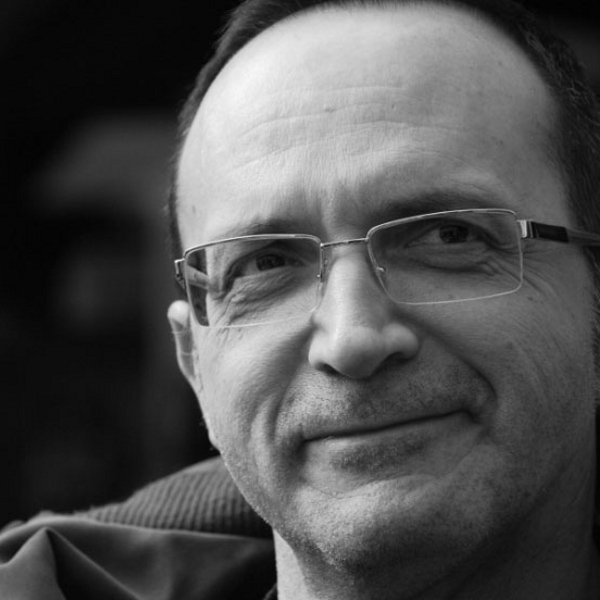Gabriele Vacis

Gabriele Vacis is a theatre director and author of pieces for the theatre, television, radio and cinema. He was one of the founders of the Laboratorio Teatro Settimo. He has also organized and directed festivals like the Torino Spiritualità and has been a stable director of the Teatro Stabile di Torino, artistic director of Teatro Regionale Alessandrino, artistic director of I Teatri in Reggio Emilia. Furthermore, he has directed the courses for future actors and directors at the “Paolo Grassi school in Milan.
He has directed the theatre and the television versions of the Racconto del Vajont, by and with Marco Paolini, winning three prizes for the television version. Among his publications, the already mentioned Racconto (Garzanti, 1997) and Awareness. Dieci giorni con Grotowski (Bulzoni, 2002) are particularly worth of notice. He has also directed great events like the Opening ceremony of the Winter Olympic Games in Turin. He teaches staging direction at the Università Cattolica di Milano and has held conferences as well as seminars at a number of universities and cultural institutions. His film Uno scampolo di paradiso has won the jury prize for the best director at the Festival of Annecy.
He is currently director of Scuola per Attori del Teatro Stabile di Torino and Istituto di Pratiche Teatrali per la Cura della Persona.
WORKSHOP
Τhe Chorus: The SCHIERA method and the actors’ singing
What do an actor’s body and a dancer’s body have in common? What do a singer’s vocality and a dancer’s vocality have in common and how do they differ from each other?
In ancient Greek tragedy and comedy, the Chorus sings and dances. Actors’ singing is based on vibratory and interpretative qualities rather than melodic ones. The quality of the vibrations is regulated by laws of tone, rhythm and volume. Actors’ success lies in their ability to discover extraordinary combinations of these three components, creating a ‘sound environment’, a place where it is difficult to tell whether actors are talking, declaiming or singing. This is where the singing of actors is produced. Rhythm, tone and volume are also required to measure actors’ dancing skills.
Participants will practice the Schiera acting method that Gabriele Vacis has been developing over years of research. Initially, participants will walk together, gradually erasing any type of movement that is not strictly necessary to a natural walk. Eventually, they will define a physical background in which improvisation is possible, based on criteria similar to those previously described for the sound environment. The method aims to train actors into becoming conscious, self-aware authors of their own presence on stage.





